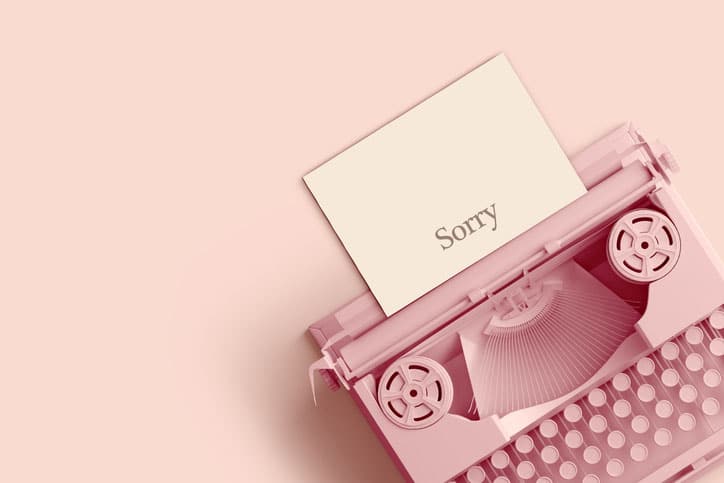 Carol Yepes/Getty Images
Carol Yepes/Getty Images I recently came across a letter of apology sent to me in 1982, when I was a 21-year-old senior at UC Berkeley, sent to me by a slightly older grad student named Todd. Reading it again for the first time in many years, I was astonished at the difference between how heated political arguments were handled then versus now. I’m sharing the story hoping that people will see that it’s possible to engage in passionate arguments while still remaining civil, with no need to try to silence opponents.
Our blowout began after a Bay Area newspaper published a letter to the editor that I had written in response to a cover story by a secular Jew who wrote about what his Jewish identity meant to him. His article upset me greatly. To my mind, he wrote about his religious exploration in a way that trivialized our sacred religious values and instead, elevated leftist social agendas and politics that he traced to Jewish roots. (Familiar story, right?) My letter was harsh, and I signed it as the editor of Ha’Etgar, UC Berkeley’s Jewish quarterly newspaper.
Todd saw my letter. Then he saw red. He also wrote a letter to the editor, ostensibly about the original article but targeted almost entirely on ridiculing me and my arguments. He belittled me by name numerous times, including an opening salvo where he referred to me in my role as editor of Ha’Etgar as a “little toy gun,” in contrast to the “big Jewish institutional guns” that he derided. Yeah, that stung.
Todd and I had only a passing acquaintanceship through Berkeley’s Jewish student community. We had never had a real conversation, let alone an argument. I was apoplectic when I saw Todd’s letter, shocked at how personal his attacks were. I called him and said I wanted to meet in person to discuss the matter. We sat on the grass on a little slope in front of the Hearst Mining Building, which I suppose was appropriate because my mood was explosive. I ripped into him for having attacked me so personally in print, while he defended himself and defended points made in the original article. My ego was too bruised and I was too young and headstrong to have been willing to give any ground, though Todd had made some valid points. Among other things, he was right that my calling the writer a “self-hating” Jew was completely inexcusable.
We resolved nothing, and I walked away from the meeting only partly mollified for having vented my anger at the right address. My reading of the situation was that Todd remained totally unmoved by my anger and hurt, but I was wrong. A week later, I received the letter from him, neatly typed on two pages. It began:
Dear Judy,
This is an extremely difficult letter for me to write. I felt very sad as you walked away after our meeting last week. I could feel your hurt and knew the time had come for a personal apology. But you had been so stubborn, as I had been (steadfast? intransigent?) that an apology seemed a sign of weakness at that moment. . .
His letter was thoughtful, proof that he had tried to understand my viewpoints, while maintaining that the tone of my letter had been “misguided and sometimes vicious . . . I hasten to add that I’m sure many of the flaws could be found in my letter. . .”
Thank you, Todd, wherever you are, for the graciousness and generosity in your letter, for not reporting me to the student government to get me booted from my editorship or trying to “cancel” me.
Thank you, Todd, wherever you are, for the graciousness and generosity in your letter, for not reporting me to the student government to get me booted from my editorship or trying to “cancel” me in whatever ways were available in those primitive days before social media became such an easily weaponized tool of destruction. Thank you for signing off with the words, “I hope there is no need for us to avoid or run away from each other—I am perfectly capable of respecting someone personally while disagreeing with them politically.”
Dialogue, time, perspective, apologies. Perhaps this can become an old-but-new recipe for conflict resolution.
Judy Gruen’s most recent book is The Skeptic and the Rabbi: Falling in Love with Faith.






















 More news and opinions than at a Shabbat dinner, right in your inbox.
More news and opinions than at a Shabbat dinner, right in your inbox.